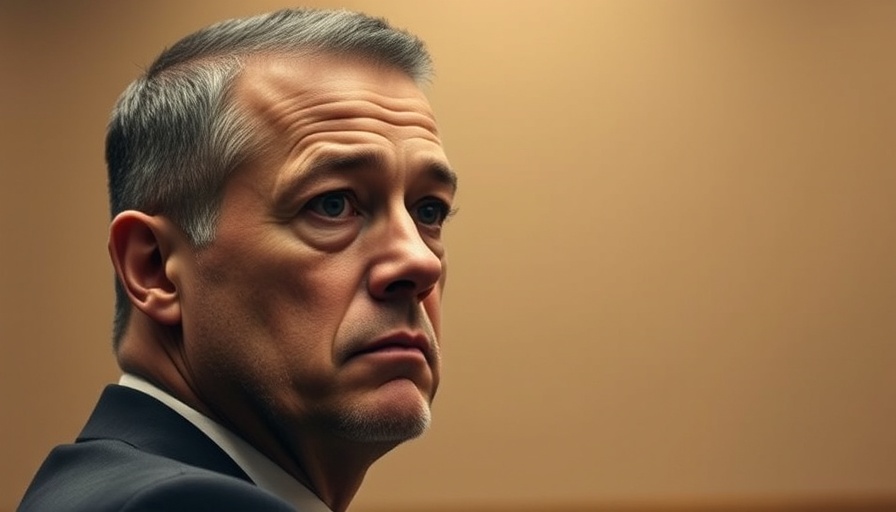
Examining Officer Schurr's Testimony: A Defense of Fear
Christopher Schurr, the former Grand Rapids Police officer on trial for second-degree murder, took an emotional stand in his defense, stating, "I believed that if I hadn’t done it at that time, I wasn’t going to go home." This plea underscores a crucial aspect of law enforcement dynamics—fear during encounters, especially when confronting situations where one’s life could be in peril.
The Role of Body Cameras in Officer-Involved Shootings
Schurr's situation has brought significant attention to the role of technology, specifically body cameras. The incident raised vital questions about recording encounters between police and civilians. Body cameras, while intended to provide accountability, also serve as point-of-view witnesses that can dramatically shift public perception and judicial outcomes. According to recent studies, officers equipped with body cameras are less likely to use force, suggesting that the presence of these devices influences behavior positively. This case, marked by emotional testimony and body camera footage, emphasizes the need for consistent policies surrounding body camera use in police departments across the country.
Coping with Fear: Mental Health in Law Enforcement
The emotional weight of the job weighs heavily on many officers. Schurr's admission of being "running on fumes" illustrates a broader issue within policing—officer mental health. It’s increasingly recognized that law enforcement professionals often face traumatic situations that can lead to severe stress and anxiety, ultimately impacting their decision-making processes. Comprehensive police training programs now include mental health resources aimed at helping officers navigate both their psychological and physical challenges on the job. This shift toward prioritizing officer wellness is essential not only for individual officers but also for community safety and public trust.
Dissecting Use-of-Force Policies: A Need for Reform?
As Schurr's trial unfolds, it also compels a reevaluation of existing use-of-force policies. The question arises: did Schurr reasonably fear for his life? This case exemplifies the ongoing conversation about necessary reforms in policing, particularly around officers’ use of lethal force. Various advocacy groups are calling for clearer guidelines and accountability in police conduct during high-pressure situations, seeking a balance between officer safety and community protection. As community advocates push for reform, police departments are confronted with the urgent need to foster trust through transparent investigations into officer-involved shootings.
Insights into Police-Community Relationships
This defiant moment in Schurr's trial emphasizes a critical and often fraught relationship between the police and the communities they serve. As communities become more aware of incidents involving police shootings, the demand for police accountability grows. Community engagement initiatives are playing an increasingly instrumental role in bridging gaps between law enforcement and residents. Police departments are adopting community policing strategies to enhance collaboration and open lines of communication, helping to restore trust that may have been eroded by incidents like the one involving Schurr.
Next Steps: What This Trial Means for Future Policymaking
As jurors deliberate Schurr's fate, the outcome will likely ripple through law enforcement agencies and influence public attitudes toward police work. Policymakers must be responsive to the implications of this case. Increasing demands for police transparency, the implementation of body camera policies, mental health support for officers, and reevaluating use-of-force guidelines are all potential legislative directions that could emerge from this moment in history. Officers and community members alike must advocate for progressive reforms to address these ongoing challenges—favoring a system built on trust, accountability, and safety for all.
Engaging in discussions on police reform is critical for moving forward from incidents like those surrounding Schurr's trial. Now more than ever, it’s essential to keep the dialogue open, ensuring every perspective is heard.
 Add Row
Add Row  Add
Add 

 Add Element
Add Element 




Write A Comment